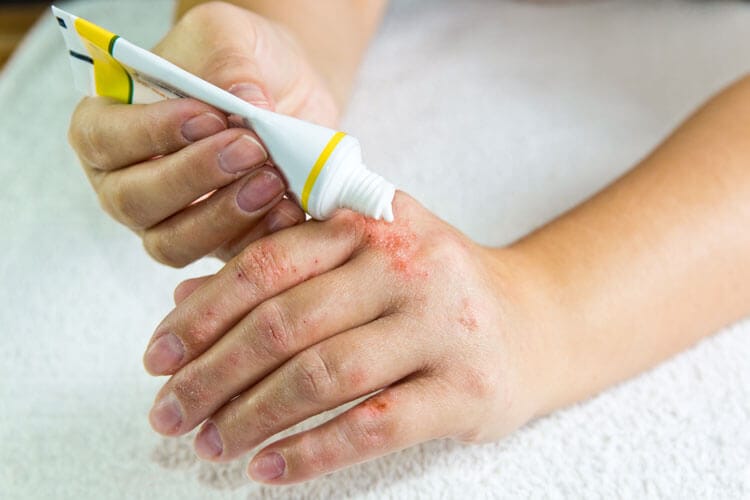Psoriasis is a chronic and relapsing disease that affects roughly 7.5 million Americans. It is characterized by red patches of raised and scaly skin covered with white/silver scales. Often these patches of skin are itchy and painful and they may crack and bleed.
Doctors are uncertain as to what causes Psoriasis, however, many believe it to be an autoimmune disease whereby the body mistakenly detects its own tissue as foreign matter and attacks itself causing the raised red patches of skin.
The most common treatments for Psoriasis are: 1) topical ointments that include corticosteroids 2) phototherapies that involve the use of ultraviolet light and 3) systemic medications to include both traditional systemic medications and biologics that are taken orally, by injection, or infusion.
Did you know?
- Psoriasis is not a contagious disease
- Psoriasis flare ups may be triggered by stress, infections, cold, smoking, and alcohol consumption
- Many doctors believe that Psoriasis is hereditary
At IC Research, we believe participation in clinical research studies is one of the best ways for doctors to identify new treatments for Psoriasis and we are grateful to all of those who have participated in our research studies!

